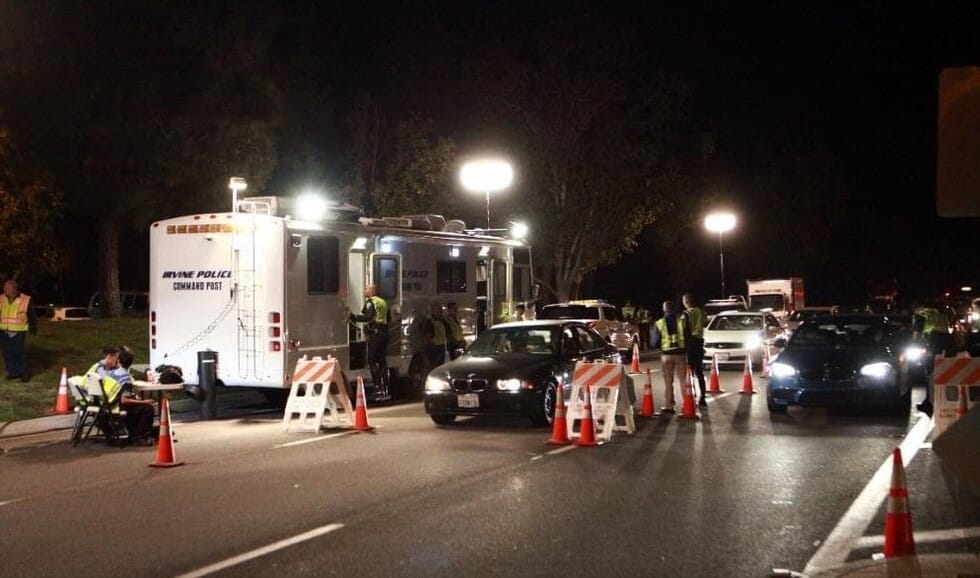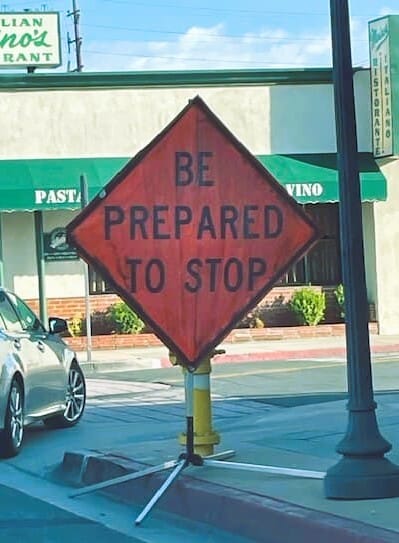
DUI Attorney for Checkpoint Cases
OVER 26 YEARS OF EXPERIENCE IN CRIMINAL AND DUI DEFENSE, PROVEN TRACK RECORD, HIGHLY RATED AND REVIEWED DUI DEFENSE ATTORNEY, FORMER PROSECUTOR.
Set yourself apart. Make the right decision. You can rely on DUI Attorney Richard Wagner’s decades of experience to fight your DUI charges. Read Richard Wagner’s profile
Attorney Richard Wagner defends clients arrested for drunk driving or DUI drugs and stopped at DUI checkpoints.
“When I got the news that the police department detectives had been to my home and left a note asking me to contact them immediately because I was facing serious charges, I was scared. I am happy that I was referred to you Mr. Wagner. It meant a lot to me that you met with me immediately and were available throughout the case. Your fees were very fair and reasonable and worth every penny!” J.J. Glendale Read what others have to say
The prosecutor can charge you with violating Vehicle Code Sections 23152 (a)(b)(c)(f) or (g) and possibly other vehicle code offenses.

Before you enter your plea at your arraignment, it is highly recommended that you have a free consultation with DUI Lawyer Richard Wagner.
Highly Rated and Reviewed DUI Defense Attorney
- 2025 Southern California Super Lawyers Criminal Defense: DUI/DWI
- Top 100 Lawyers by National Trial Lawyers
- Top One Percent Attorneys by the National Association of Distinguished Counsel
- Superb Attorney Rating 10.0/10.0 and 5-Star Reviews on AVVO
- 5-Star Reviews on Google
- 5-Star Reviews on Yelp
DUI lawyer Richard Wagner can fight your arrest and detention by filing motions in court based on the Fourth Amendment to the United States Constitution.1
Are DUI Checkpoints Legal in California?
California Law – California Supreme Court Rules
In setting up the checkpoint, the police department must have “implemented procedures designed to provide minimal interference with individual liberties.”
There are “functional guidelines for minimizing the intrusiveness of the sobriety checkpoint stop.”2

(1) Decision-making at the Supervisory Level;
(2) Limits on Discretion of Field Officers;
(3) Maintenance of Safety Conditions;
(4) Reasonable Location;
(5) Time and Duration;
(6) Indicia of Official Nature of Roadblock;
(7) Length and Nature of Detention; and
(8) Advance Publicity.3
As California Supreme Court Justice Broussard stated, “the Fourth Amendment is highly inexpedient to law enforcement … I see no basis for distinguishing a drunken driving roadblock from any other mass detention …”4
Experienced DUI Attorneys identify the crucial parts of your DUI defense regardless of your blood-alcohol level, so-called signs of impairment like slurred speech or alleged results on field sobriety tests.
The purpose of the Fourth Amendment is to safeguard the privacy and security of individuals against arbitrary invasions by governmental officials.5
With the right DUI Defense Attorney looking for the right evidence in your favor, your attorney can make the case that the police officers illegally stopped you at an unconstitutional roadblock and subjected you to a warrantless search and seizure.
Are There Any DUI Checkpoints Tonight?
Orange County DUI Checkpoints Alerts – Recent DUI Checkpoints in Orange County, California
California DUI Checkpoint Locations – DUI Sobriety Checkpoints Locations on Facebook
Los Angeles DUI Checkpoints Alerts – Recent DUI Checkpoints in Los Angeles County, California
Riverside DUI Checkpoints Alerts – Recent DUI Checkpoints in Riverside County, California
San Bernardino DUI Checkpoints Alerts – Recent DUI Checkpoints in San Bernardino County, California
The primary purpose of the checkpoint must be to prevent and deter conduct that could injure people or damage property; they are not conventional criminal searches and seizures.6
The United States Supreme Court has “never approved a [DUI sobriety checkpoint] whose primary purpose was to detect evidence of ordinary criminal wrongdoing.”7
Having a secondary purpose of keeping drivers under the influence off the road does not make such a checkpoint Constitutional.8
Call (714) 721-4423 Now For Help … Probably the most troubling thing about a DUI conviction is the effect on your criminal record and driver’s license. A top-notch DUI defense attorney gives you the best chance of avoiding both. You are invited to meet with Richard Wagner for a free, no-cost DUI Consultation and DUI Case Evaluation and explore options for fighting your DUI.
1 “The right of the people to be secure in their persons, houses, papers, and effects, against unreasonable searches and seizures, shall not be violated . . . .”
2 Ingersoll v. Palmer, (1987) 43 Cal. 3d 1321, 1341-1346.
3 “…the United States Supreme Court’s subsequent decision in [Michigan State Police Dept. v. Sitz, (1990) 496 U.S. 444] demonstrates that advance publicity is not a constitutionally required prerequisite.” People v. Banks, (1993) 6 Cal. 4th 926, 935; But see Ingersoll v. Palmer (1987) 43 Cal.3d 1321, 1336 in which the Court noted, “the sobriety checkpoints received substantial advance publicity…”
4 Ingersoll v. Palmer, (1987) 43 Cal. 3d 1321, 1356.
5 Camara v. Municipal Court of the City and County of San Francisco (1967) 387 U.S. 523, 528.
6 Ingersoll v. Palmer, (1987) 43 Cal. 3d 1321, 1331.
7 City of Indianapolis v. Edmond, (2002) 531 U.S. 32, 41.
8 City of Indianapolis v. Edmond, (2002) 531 U.S. 32, 46 (“Petitioners argue that the Indianapolis checkpoint program is justified by its lawful secondary purposes of keeping impaired motorists off the road and verifying licenses and registrations. If this were the case, however, law enforcement authorities would be able to establish checkpoints for virtually any purpose so long as they also included a license or sobriety check.)
